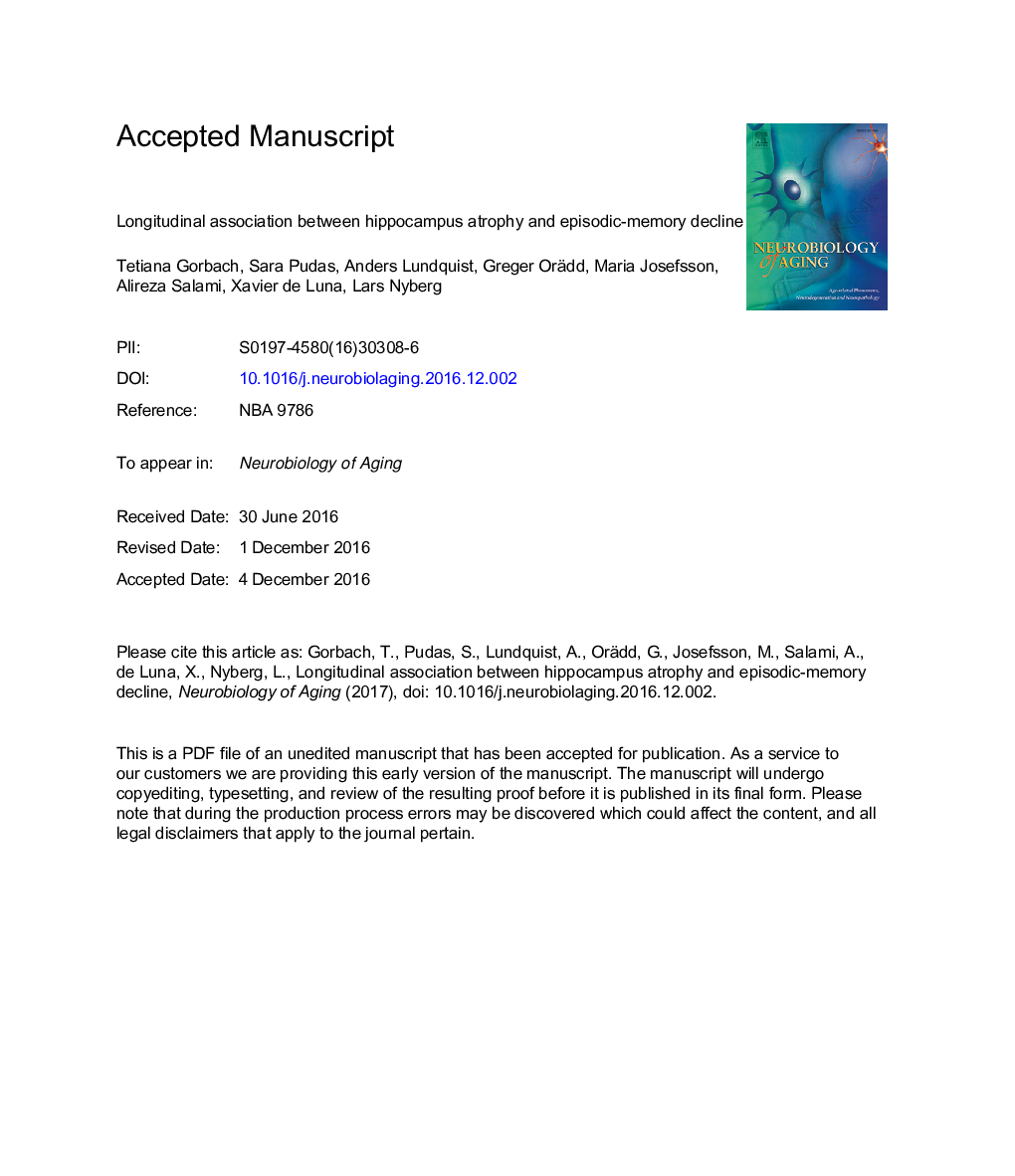| Article ID | Journal | Published Year | Pages | File Type |
|---|---|---|---|---|
| 4932787 | Neurobiology of Aging | 2017 | 40 Pages |
Abstract
There is marked variability in both onset and rate of episodic-memory decline in aging. Structural magnetic resonance imaging studies have revealed that the extent of age-related brain changes varies markedly across individuals. Past studies of whether regional atrophy accounts for episodic-memory decline in aging have yielded inconclusive findings. Here we related 15-year changes in episodic memory to 4-year changes in cortical and subcortical gray matter volume and in white-matter connectivity and lesions. In addition, changes in word fluency, fluid IQ (Block Design), and processing speed were estimated and related to structural brain changes. Significant negative change over time was observed for all cognitive and brain measures. A robust brain-cognition change-change association was observed for episodic-memory decline and atrophy in the hippocampus. This association was significant for older (65-80Â years) but not middle-aged (55-60Â years) participants and not sensitive to the assumption of ignorable attrition. Thus, these longitudinal findings highlight medial-temporal lobe system integrity as particularly crucial for maintaining episodic-memory functioning in older age.
Related Topics
Life Sciences
Biochemistry, Genetics and Molecular Biology
Ageing
Authors
Tetiana Gorbach, Sara Pudas, Anders Lundquist, Greger Orädd, Maria Josefsson, Alireza Salami, Xavier de Luna, Lars Nyberg,
